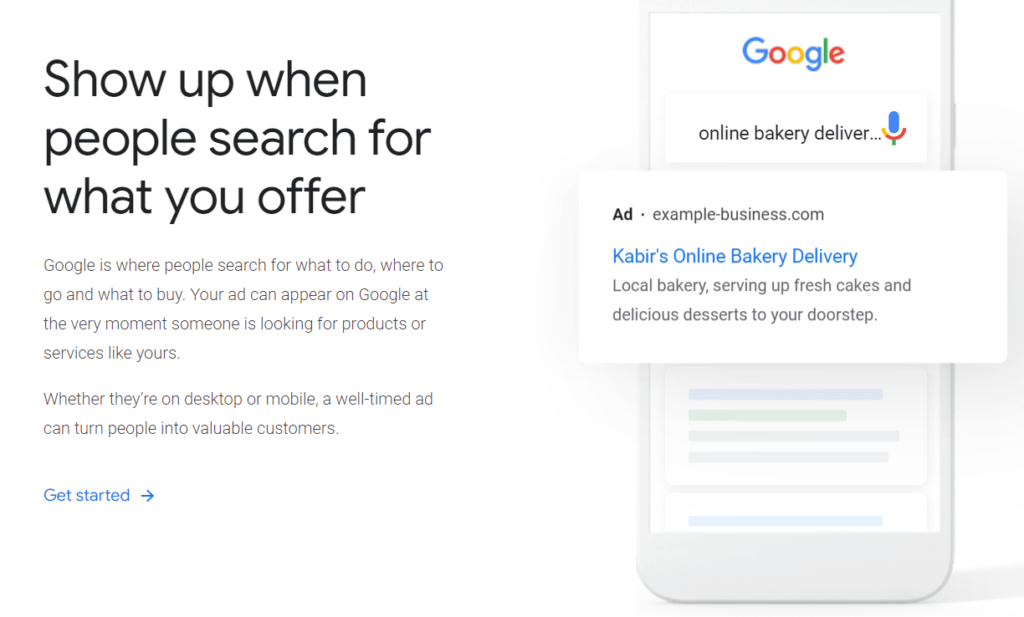In the digital era, businesses worldwide are increasingly turning towards online advertising platforms to reach their target audience and maximize potential revenue. Two internet titans stand out among the available platforms: Facebook Ads and Google AdWords.
With a combined user base of over 5 billion people, it’s no wonder businesses are vying to determine which platform provides the most effective advertising for their eCommerce needs. But the ultimate question is – which of these powerhouses of digital marketing should companies primarily invest in to bring the most bang for their buck?
Dive into this comprehensive comparison between Facebook Ads and Google AdWords as we explore their unique features, benefits, and drawbacks to help you determine which platform will be the perfect match for your eCommerce venture.
Introduction to eCommerce Advertising
Today’s eCommerce businesses strive to showcase their products and services to the right audience at the right time. This is where online advertising platforms, such as Facebook Ads and Google AdWords, are pivotal in driving traffic, sales, and brand awareness. Both platforms have proven highly effective for eCommerce businesses and offer unique features and targeting options catering to different marketing objectives.
According to recent statistics, over 2.14 billion people worldwide are expected to buy goods and services online in 2021, highlighting the immense potential for growth and revenue generation through e-commerce advertising. Moreover, it is estimated that in the U.S. alone, retail eCommerce sales amounted to 431.6 billion U.S. dollars in 2020 and are projected to grow further in the coming years.
A key reason behind this growth is businesses’ increased adoption of online advertising channels to promote their offerings. With its massive user base and granular targeting options, Facebook Ads allows businesses to reach highly relevant audiences based on demographics, interests, and behaviors.
On the other hand, Google AdWords enables advertisers to reach potential customers actively searching for products and services similar to those they offer through text-based ads on search engine result pages and visually appealing display ads on partner websites.
eCommerce advertising plays a crucial role in driving business growth, and whether to use Facebook Ads or Google AdWords depends on factors like marketing objectives, target audience, and budget constraints. By leveraging the power of these platforms, businesses can achieve remarkable results and stay ahead in the competitive world of eCommerce. [1][2]
Also Read: Benefits of Pay-per-click Advertising and Tips for PPC Optimization
The Power of Google Ads
The power of Google Ads in driving traffic and increasing sales for eCommerce businesses cannot be underestimated. This advertising platform allows you to showcase your products and services to the right people, in the right place and time. Moreover, Google Ads offers various targeting options, enabling advertisers to reach their potential customers more effectively.
One of the main benefits of utilizing Google Ads is targeting your ads specifically to those interested in your products and services. You can ensure that your ads reach the intended audience with keyword targeting, ad location, age, language, and geographical targeting. Additionally, you can control your ad frequency and choose the days and times when your advertisements will be displayed.
Google Ads also puts you in control of your budget, as there is no minimum spending requirement. You have the option to determine how much you want to spend per day, per month, and per ad. Furthermore, you only pay when someone clicks on your ad, ensuring your advertising dollars are spent wisely.

Another key feature of Google Ads is its ability to provide valuable insights regarding the performance of your campaigns. This enables you to measure your success and make data-driven decisions to optimize your ads for better results. The platform also offers various management tools for easily overseeing and editing your Google Ads campaigns, allowing you to save time and resources.
Google Ads is essential to any eCommerce marketing strategy. Its powerful targeting capabilities, budget control, and useful analytical tools make it a highly effective platform for promoting your products and increasing your online sales. [3][4]
The Importance of Facebook Ads
In a highly competitive eCommerce market, businesses need to incorporate an effective advertising strategy, and Facebook Ads have emerged as a crucial avenue to reach potential customers. With over 2.7 billion monthly active users, Facebook provides a vast platform for businesses to showcase their products and services to a diverse, engaged audience. Using these Ads, eCommerce businesses can enhance brand visibility, generate leads, and boost sales.
One significant advantage of Facebook Ads is the precise targeting options available. Businesses can target users based on specific demographics, interests, behaviors, and even relationships with existing customers. This allows advertisers to reach their ideal audience efficiently and increase the chances of driving conversions. Furthermore, ads can be displayed on Facebook, Instagram, Messenger, and Audience Network, thus increasing ad exposure and overall campaign effectiveness.

Retargeting is another critical aspect of these ads, enabling businesses to re-engage with users who have previously visited their website or interacted with their content on the platform. This helps maintain brand recall and increases the likelihood of customers completing desired actions, such as purchasing.
By taking advantage of Facebook Ads’ detailed metrics and analytics, businesses can effectively track campaign performance, measure results, and optimize ads to enhance return on investment. With the platform’s user-friendly ad management tools, Facebook Ads is a powerful and essential component of any eCommerce advertising strategy. Both Facebook Ads and Google AdWords offer unique benefits and, when used together, can create a well-rounded marketing approach that drives significant success for eCommerce businesses. [5][6]
The Differences in Targeting Strategies
When it comes to advertising for eCommerce, both Facebook Ads and Google AdWords offer unique and effective targeting options. However, their strategies differ, and understanding these differences is crucial in determining which platform will work best for your business.
Facebook Ads primarily target users based on their interests, demographics, behaviors, and connections. This extensive database allows advertisers to segment their audience granularly and display highly relevant ads. For example, if your eCommerce store sells fitness equipment, you can create ads specifically targeting individuals interested in fitness, have recently visited gym websites, or are part of a workout group on Facebook.
Google AdWords, on the other hand, is intent-based and targets users according to their search queries. It utilizes keyword targeting, allowing advertisers to display ads when users search for specific terms related to their products or services. This approach enables businesses to target customers actively looking for solutions, increasing the likelihood of conversions. For instance, if someone searches for “buy running shoes online,” Google AdWords can show your eCommerce store’s ad, as it directly relates to the user’s query.
Both targeting strategies have advantages and ultimately work best when used in tandem. Facebook Ads offer highly targeted exposure to a vast audience, perfect for brand awareness and engagement. Google AdWords allows you to reach users with strong intent, driving higher conversion rates. Both platforms can maximize your eCommerce store’s visibility, attract new customers, and boost sales. [7][8]
The Differences in Ad Formats
Regarding advertising in the digital world, Facebook Ads and Google AdWords have become the go-to platforms for many eCommerce businesses. Both platforms offer unique benefits in ad formats, each catering to different advertising goals.
Facebook Ads primarily focuses on display advertising, delivering visually striking ads within the user’s newsfeed or in the right-hand column. Advertisers can choose from single images, carousels, slideshow, and video ads. The platform also provides interactive ad formats such as Canvas and the newer Collection ads, allowing users to engage with the content in a more immersive manner. Furthermore, Facebook Ads allows advertisers to create lead generation forms directly within the platform, making it easier for potential customers to provide information.
Google AdWords is known for its search advertising, where text-based ads appear alongside organic search results. This format is particularly effective for targeting users with high purchase intent, as they actively search for specific products or services. Google AdWords also offers display advertising through the Google Display Network, which allows advertisers to place their ads on various websites, apps, and videos.
The platform supports image, rich media, and video ad formats, enabling advertisers to reach their target audience with engaging content. Additionally, Google AdWords offers shopping ads that showcase product images and prices within the search results, making it easier for users to compare and make purchasing decisions.
Facebook Ads and Google AdWords provide diverse ad formats for different advertising objectives. While Facebook Ads excels in creating highly visual and interactive ad experiences, Google AdWords focuses on delivering targeted ads based on user search behavior. Ultimately, advertisers should consider their campaign goals, target audience, and budget when deciding on the most effective ad format for their eCommerce business. [9][10]
The Differences in Cost
Regarding advertising costs, it’s essential to consider the differences between Facebook Ads and Google AdWords for your eCommerce business. Both platforms offer different pricing structures, impacting your advertising budget and return on investment (ROI).
One of the primary differences in cost between the two platforms is the bidding system. Google AdWords uses a cost-per-click (CPC) model, meaning you only pay when someone clicks on your ad. This can be an effective way to ensure your advertising dollars are only spent on interested potential customers. However, the cost of CPC can vary greatly depending on the keywords you target and the competition in your industry.
Facebook Ads utilizes a cost-per-thousand-impressions (CPM) model, where you pay for every 1,000 times your ad is shown to users. This can be helpful if your goal is to increase brand awareness and reach a larger audience. However, it may not always guarantee a high conversion rate, as users may not necessarily engage with your ad or make a purchase.
Additionally, Facebook Ads tend to have a lower overall cost than Google AdWords. However, this can vary depending on your target audience, ad design, and campaign goals. While Facebook Ads may be more cost effective for some businesses, the final decision should depend on your eCommerce store’s specific marketing objectives and target audience.
Facebook Ads and Google AdWords can offer significant benefits when used strategically and effectively. To determine which platform is more cost-effective for your eCommerce business, it’s crucial to analyze your specific goals, audience preferences, and budget constraints to make the most informed decision possible. [11][12]
Measuring Success: Facebook Ads vs. Google AdWords, Which Platform is Better?
When comparing Facebook Ads and Google AdWords in terms of effectiveness for eCommerce, it is crucial to examine both platforms in terms of their capabilities to measure success and drive results. Each platform serves a unique purpose and offers various tools for tracking and analyzing performance, which can be beneficial depending on a business’s goals and objectives.
Google AdWords, now known as Google Ads, is known for its ability to drive immediate results through highly targeted search campaigns. It offers a wealth of data and tracking capabilities that allow businesses to accurately measure ad performance and calculate return on investment (ROI). With a focus on conversions and cost per click (CPC), Google Ads is an ideal platform for generating qualified leads and driving sales for e-commerce businesses.
Facebook Ads provide a broader audience reach and is more focused on promoting brand awareness and engagement. It allows businesses to target users based on their interests, demographics, and online behaviors, resulting in highly personalized ad experiences. Facebook Ads also offers robust tracking features, such as Facebook Pixel, which allows businesses to monitor ad performance, conversion rates, and other metrics.
Facebook Ads and Google Ads have unique strengths and weaknesses, making it essential for businesses to determine which platform aligns best with their specific goals and objectives. Google Ads may be the better option for those looking to generate immediate sales. At the same time, Facebook Ads could be more suitable for businesses aiming to build brand awareness and establish a social presence.
Ultimately, combining the powers of both platforms can maximize the overall success of an ecommerce marketing campaign by reaching a wider audience and driving better results. [13][14]
Combining Facebook and Google Ads
eCommerce businesses must use multiple online advertising platforms for maximum reach and success. Combining the power of Facebook Ads and Google Ads can drive higher engagement and increased conversions for online stores.
By implementing a comprehensive and cohesive strategy that leverages the strengths of both platforms, marketers can achieve better results and make the most of their advertising budgets.
Facebook Ads offer precise targeting capabilities based on user demographics, interests, and behavior, allowing businesses to effectively reach potential customers who demonstrate a genuine interest in their products or services. With visually engaging ad formats such as carousels, slideshow, and video ads, Facebook enables brands to showcase their offerings in a highly appealing way.
Additionally, retargeting capabilities on Facebook allow businesses to follow up with users who have previously engaged with their ads or website, increasing the likelihood of conversion.
Google Ads focuses on search intent, displaying text ads on search result pages to users actively searching for specific products or services. This approach ensures that ads are shown to highly motivated customers more likely to purchase.
Google Ads enables businesses to bid on relevant keywords, increasing their visibility to potential customers and driving website traffic. It also provides valuable insights into keyword performance, which marketers can use to refine their organic SEO strategies.
Combining Facebook and Google Ads can create a strong and diverse advertising strategy for eCommerce businesses. By leveraging each platform’s unique strengths, online stores can increase their visibility, attract a broader audience, and ultimately improve their bottom line. [15][16]
Best Practices for eCommerce Advertising
To maximize the effectiveness of eCommerce advertising, it is essential to follow best practices for both Facebook Ads and Google Ads. These practices ensure optimal ad performance, attracting potential customers and driving sales.
1. Define clear objectives: Set specific, measurable, achievable, relevant, and time-bound (SMART) goals to guide your advertising strategy. This will help you monitor progress and adjust your tactics accordingly.
2. Choose the right platform: Analyze your target audience and business objectives to determine which platform — Facebook Ads or Google Ads — is better suited for your eCommerce business. Remember that each platform has its strengths and weaknesses, so opting for a multi-channel approach may deliver the best results.
3. Optimize targeting: Utilize audience targeting features to reach the right people at the right time. Use demographic, geographic, and interest-based targeting to show your ads to people most likely to engage and convert.
4. Create compelling ad creatives: Use high-quality images and videos, attention-grabbing headlines, and engaging ad copy to capture the attention of potential customers. Ensure that your creatives are consistent with your brand identity and messaging.
5. Monitor and optimize campaigns: Regularly analyze your ad performance data and make necessary adjustments to improve your campaigns. Adjust bidding strategies, keywords, and targeting options to enhance your results.
6. Utilize ad extensions: For Google Ads, use sitelinks, callouts, and structured snippets to provide additional information to potential customers, improving the overall ad experience.
7. Test and iterate: Conduct A/B testing on your ad creatives, headlines, and call-to-actions to determine what resonates best with your audience. Use the insights gained from this process to refine your ads and drive better results.
8. Align with your overall marketing strategy: Ensure that your eCommerce advertising efforts complement your broader marketing strategy, including content marketing, SEO, and email marketing.
9. Keep abreast of platform updates and best practices: Stay up-to-date with the latest developments in Facebook Ads and Google Ads to leverage new features and maximize your eCommerce advertising success. [17][18]
Choosing the Right Platform for Your Business
When selecting the right advertising platform for your eCommerce business, it’s crucial to consider your business’s unique characteristics and requirements as well as the potential return on investment (ROI). Facebook Ads and Google AdWords offer considerable benefits and have strengths that can help drive eCommerce traffic and sales.
Facebook Ads are known for their ability to target specific user demographics, interests, and behaviors. This means that, as an eCommerce business owner, you can create highly personalized ad campaigns that resonate with your target audience. Additionally, Facebook’s visual content format offers a more engaging experience for users, and its cost-per-click (CPC) is often lower than Google Ads.
Google AdWords excels in offering highly targeted search-based advertising. As an eCommerce business, you can bid on specific keywords relevant to your products or services to reach users actively searching for your offer. Google’s massive search engine market share ensures that your ads will be viewed by many potential customers. Furthermore, Google AdWords offers a variety of ad formats, including search, display, and video ads, providing multiple options for promoting your eCommerce store.
Ultimately, the choice between Facebook Ads and Google AdWords should be based on your marketing objectives, target audience, and budget. Some eCommerce businesses may find that combining both platforms works best for maximizing ROI and reaching a broader audience. To fully exploit the potential of these advertising platforms, it’s essential to continually monitor, analyze, and optimize your ad campaigns. [19][20]
Also Read: Crafting a Winning Social Media Marketing Strategy for E-Commerce Business
Frequently Asked Questions
Que: What are Facebook Ads and Google AdWords?
Ans: Facebook Ads are a form of online advertising offered by Facebook, allowing businesses to create targeted ads and reach a specific audience based on various demographics, interests, and behaviors. Google AdWords, now known as Google Ads, is Google’s online advertising platform that enables businesses to display ads on Google search results pages, websites, and apps within the Google Display Network.
Que: Which platform is more effective for eCommerce: Facebook Ads or Google AdWords?
Ans: Both Facebook Ads and Google AdWords have their own strengths and can be effective for eCommerce, but their effectiveness depends on various factors. Facebook Ads are great for targeting specific audiences based on interests, demographics, and behaviors, making them effective for brand awareness and generating leads. On the other hand, Google AdWords allows businesses to target users actively searching for specific products or services, making it more effective for capturing intent-driven conversions.
Que: How can Facebook Ads help eCommerce businesses?
Ans: Facebook Ads offer several benefits for eCommerce businesses. They provide extensive audience targeting options, enabling businesses to reach their ideal customers. With Facebook’s vast user base, businesses can increase brand visibility and awareness. Moreover, Facebook Ads can drive traffic to eCommerce websites, promote specific products, and generate leads through effective ad campaigns. Businesses can also retarget website visitors and create custom audiences for remarketing purposes.
Que: What are the advantages of using Google AdWords for eCommerce?
Ans: Google AdWords offers several advantages for eCommerce businesses. One major benefit is the ability to target users actively searching for products or services, increasing the likelihood of conversions. With Google Ads, businesses can utilize keyword targeting to display ads based on relevant search queries. Additionally, Google’s extensive ad network allows businesses to reach users across various websites and apps, maximizing exposure and potential sales.
Que: Can SEO keywords be incorporated into Facebook Ads and Google AdWords?
Ans: While SEO keywords are primarily associated with organic search rankings, they can still be utilized in Facebook Ads and Google AdWords to improve campaign performance. In Facebook Ads, keywords can be used in ad copy, headlines, and descriptions to optimize relevance and increase click-through rates. Similarly, in Google AdWords, keywords play a crucial role in determining when and where ads are displayed. Businesses should conduct thorough keyword research to identify the most relevant and high-converting keywords to incorporate into their campaigns.
Que: How can businesses measure the effectiveness of Facebook Ads and Google AdWords for eCommerce?
Ans: To measure the effectiveness of Facebook Ads and Google AdWords campaigns for eCommerce, businesses can track key performance indicators (KPIs) such as impressions, clicks, click-through rates, conversions, return on ad spend (ROAS), and cost per acquisition (CPA). Both platforms provide robust analytics and reporting tools that allow businesses to assess campaign performance, optimize targeting and messaging, and make data-driven decisions to improve ROI.
Que: Can businesses use Facebook Ads and Google AdWords simultaneously for eCommerce?
Ans: Yes, businesses can and often should use both Facebook Ads and Google AdWords simultaneously for eCommerce. By leveraging the strengths of each platform, businesses can reach a wider audience and increase their chances of conversions. Facebook Ads can help build brand awareness and engage with potential customers, while Google AdWords can capture intent-driven traffic and drive direct sales. A well-coordinated marketing strategy utilizing both platforms can yield better overall results.
Que: Are there any specific tips for optimizing Facebook Ads and Google AdWords for eCommerce?
Ans: For Facebook Ads, it’s crucial to define specific target audiences based on demographics, interests, and behaviors. A/B testing different ad creatives, headlines, and descriptions can help optimize performance. For Google AdWords, thorough keyword research and strategic bidding are essential. Implementing ad extensions, such as sitelink extensions or call extensions, can also improve ad visibility and click-through rates. Regular monitoring, analysis, and optimization of campaigns are key to achieving the best results on both platforms.







